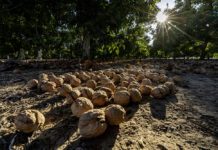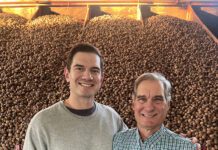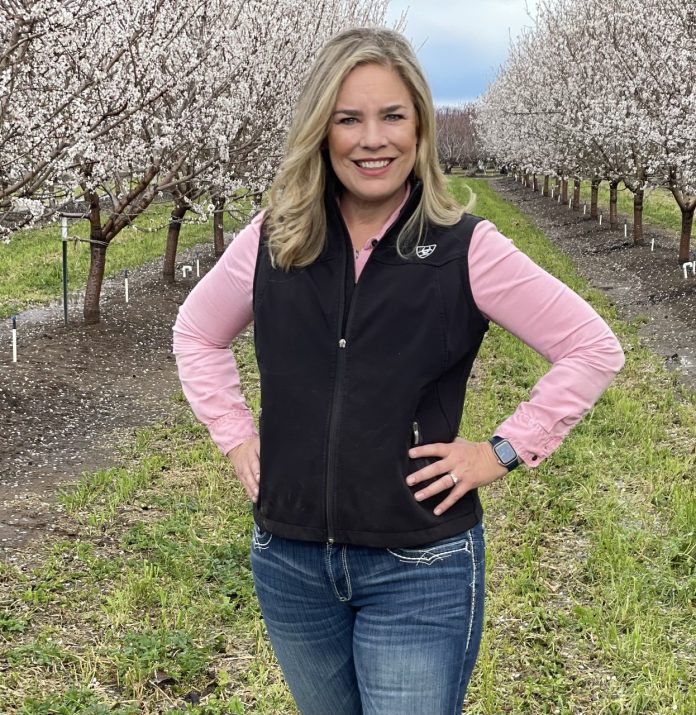
Julie Eilers Clary is the manager/chief executive officer of Eilers Ranch, LLC in Linden, Calif., a family-run farm that grows walnuts and almonds.
Clary has a rich family history of growing nuts in San Joaquin County. Her grandfather began growing walnuts in 1918, becoming one of the charter members of Diamond Walnut. When her father took the reins of the family farm, he became an innovator, improving growing practices for the entire industry.
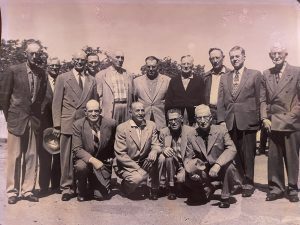
When her father died in 2015, Clary and her husband left their careers in Sacramento and returned to Julie’s family farm. Although Clary had grown up on the farm, both she and her husband had to dig in and learn the nuts and bolts of running and growing the business.
With her rich family legacy and perspective as a woman taking over management of her family farm, Clary brings unique perspective and insight to her role at Eilers Farm. She sat down with West Coast Nut magazine to share some of those perspectives.
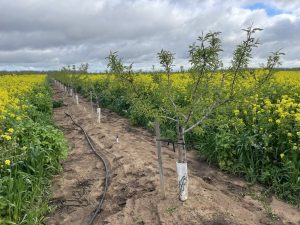
Q. Tell me a little bit about the history of your farming operation.
My family immigrated from northern Germany in 1858 and began farming row crops and herding sheep. In 1918, my grandfather began farming walnuts and was one of the charter members of Diamond Walnut.
My grandmother, Henriette, farmed grain independently on the other side of Linden. They married and raised my father, Henry Eilers, who graduated from UC Davis with a degree in plant science. He continued expanding our walnut operation while creating new innovations that improved the farming industry.
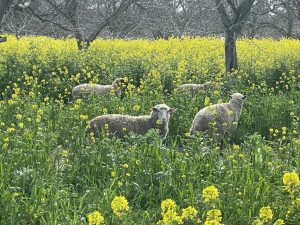
Some of his biggest contributions included a return flow system for drainage water and developing a walnut de-sticker with Flory industries for self-propelled harvesters as well as doing field trials with UC Cooperative Extension.
After he passed away in 2015, my husband, sons and I moved back to Linden from Sacramento to learn and care for our farm and continue our heritage in agriculture. Since that time, we have replanted aging orchards into walnuts and almonds while expanding our knowledge in the field.
Q. How have your farming practices evolved in recent years? What new production practices have you embraced and why?
In addition to standard moisture measurement such as evapotranspiration and soil probes, we have applied other methods to efficiently irrigate, including remote capacitance moisture probes and pressure bomb use.
We plant cover crops for improvement of soil composition and drainage as well as bee health. Use of low-dust harvesters, electric ATVs and chipping instead of burning during orchard removal helps air quality.
During this rainy year, we have brought in sheep as an alternative to chopping some of our orchards.
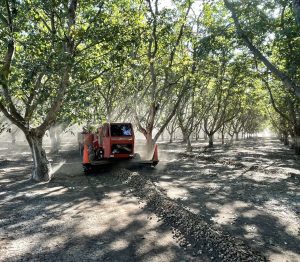
Q. What are the three things that keep you up at night related to growing walnuts and almonds?
The walnut and almond oversupply, shipping crisis and export tariffs have led to low grower returns that are beyond our control.
Q. What are you most hopeful for in the future when it comes to farming almonds and walnuts?
With the current low prices for walnuts and almonds, new customers have been drawn into the marketplace. I see this as an opportunity to broaden the consumer base domestically and globally that could lead to greater demand.
Q. What in your opinion needs to happen to set the industry in the best possible direction for the future?
Leadership from the California Walnut Board and Almond Board of California in partnership with farmers working together to drive consumer demand through marketing, achieving tariff reduction, research, innovation and quality control. The situation for growers is urgent, particularly in walnuts, so we need our California Walnut Board to act intelligently, boldly and immediately.
Q. What do you think are the biggest assets of the nut industry in California?
The biggest assets of California’s nut industry include our superior-quality products, high standards, exceptional innovation, service, honest business practices and extraordinary development from varieties to harvesting.
Q. What is your proudest achievement as it relates to your professional development?
Transitioning from my first career as a nurse anesthetist to successfully running our family business is one of my proudest achievements. After my father passed, it was clear to me that my family roots were at the center of what was truly important in life.
This led me to bid farewell to my anesthesia career and focus my energy on our farm. As a team, my husband and I have taken the challenge to carry on my family heritage.
Q. How do you give back to the community both in agriculture and in the community where your operation is based?
We have served as leaders in our local 4-H club, hosted FFA events and hired and trained young adults interested in agriculture. Our farm has participated in trials and research to further the nut industry.
Q. What advice do you have for a young person getting into farming nuts today?
My advice for young men and women interested in agriculture is to share that hard work, integrity, faith and perseverance are at the heart of growing a beautiful and delicious product. There is nothing like the joy of watching our walnuts and almonds grow and these fruits of our labor leaving the ranch to feed the world.
Q. Who was the biggest influence or mentor for you in your nut farming career?
My father instilled confidence in me from a young age. He always encouraged me that I had what it took to farm.
My grandmother proved to me that women are capable of farming on a large scale. It has been a steep up-hill learning curve without them and could not have been accomplished without a lot of prayer and perseverance as well as guidance from our mentor Brent Barton.
He counselled my husband and me through many teachable moments as we adapted to this exciting career called farming.
Q. What do you think the biggest advancement has been in the field of nut growing during your career?
One of the biggest advancements has been the introduction of driverless tractors. By improving efficiency, skilled workers are freed up to perform more important duties. Moreover, autonomous farm tractors can farm in the dark, allowing for longer agricultural working hours year-round.
Q. What advancements do you foresee having a big impact in the future?
The breeding programs in both the walnut and almond industries are creating varieties and rootstocks more suitable for drought conditions, severe weather events, pollination and poor soil composition. Striving to be the industry leader in these areas will carry tree nut farming successfully into the next generation.








